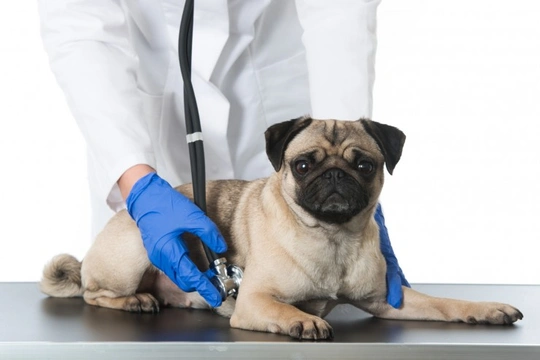
Causes of atraumatic bleeding in the dog
Atraumatic bleeding is the term used to refer to bleeding that has not occurred due to an injury or trauma, such as blood being shed from an orifice like the ears or bladder. Bleeding is of course a symptom that should not be overlooked, and so if your dog is bleeding inexplicably, particularly from an orifice, it is important to investigate this and get your dog checked out by the vet, in order to find out what is wrong.
In this article, we will look at some of the most common regions of the dog that can be affected by atraumatic bleeding, and what causes them to occur. Read on to learn more.
Where may atraumatic bleeding occur?
Virtually any orifice of the dog may bleed if there is something amiss with that area of the body, or something internal is going on that is leading to associated blood loss. Some of the most common regions of the body that can suffer from atraumatic bleeding include:
- The ears.
- The rectum.
- The vulva or penis.
- The mouth.
- A bladder or urinary system bleed.
Bleeding from the ears
One of the most common reasons for bleeding from the ears of the dog, which is not related to an injury or trauma, is ear mites. Ear mite infestations in dogs are relatively common, and can be hard to fully eradicate. Ear mites cause severe pruritus around the ears, and your dog’s persistent scratching and bothering at their ears can cause cuts, abscesses and lesions within the ear itself, which can cause blood to appear in or around the ear.
Rectal bleeding
There are a reasonably wide range of different reasons for why your dog might be bleeding from their rectum, some of which involve the area around the anus itself and some of which are due to internal problems within the bowel and digestive tract.
Inflamed anal glands, rectal polyps and other problems can lead to bleeding that will generally appear bright red or pus-like, while blood that appears dark brown or black in colour indicates a problem in the digestive tract or bowels themselves.
Blood in the urine
Blood within the urine, either appearing red or discolouring the urine to an orange shade may be indicative of inflammations or infections of the urinary tract, such as cystitis or kidney problems.
Kidney and bladder stones and crystal formation can also lead to blood becoming present in the urine, as can anything else with sharp edges that may damage the delicate lining of the bladder.
Blood coming from the penis
Problems with the reproductive system, testes or prostate gland can lead to bleeding from the penis, and your vet will need to run a range of tests on your dog to get to the root of the problem. Prostate issues are often the cause of penile bleeding, but internal injuries and even canine sexually transmitted diseases may cause bleeding from the penis, particularly in entire male dogs that are not neutered.
Blood coming from the vulva
Obviously, unspayed bitches of breeding age will generally come into season a couple of times per year, which is a fairly self-explanatory reason for blood coming from the vulva, but behavioural changes and other signs of the heat cycle will usually accompany your bitch’s normal season, allowing you to tell the difference between this and problem bleeding.
Canine pyometra is the most frequent cause of non-heat cycle bleeding from the vulva, and pyometra is an infection of the womb, which can be either open or closed. A closed pyometra is one that does not involve an external discharge, and so bleeding from the vulva is likely to be caused by an open pyometra in the dog. Pyometra can be life threatening, and so requires urgent veterinary attention.
Oral bleeding
If your dog has blood around their mouths or on their gums and this is not due to an injury or because they have just eaten something odd, this is most commonly an indication of problems with the teeth and gums.
Gum disease, gingivitis and issues such as abscesses within the mouth can all cause bleeding, as can tumours and other growths further inside of the mouth itself. Your dog should have a full dental check up with the vet in order to get to the root of the problem, which may necessitate a full anesthetised dental procedure to clean the teeth properly, investigate further, and deal with anything that is causing an issue, such as abscesses, loose teeth or damaged teeth.
Regardless of the area from which your dog is bleeding, it is important to get your vet to check your dog over and get to the root of the problem quickly, and so you should schedule an appointment for your dog as soon as you become aware that something is amiss.



